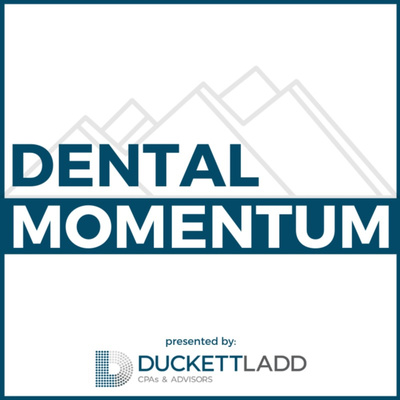Many busy professionals are so engaged with the day-to-day activities of their careers that they don’t give much thought to long-term financial planning. This is a mistake. A dedicated approach to financial planning is crucial for a stable and prosperous career, leading to the timely and comfortable retirement you deserve.
Dentists face unique financial challenges and opportunities—which is why it pays to work with financial professionals specializing in the dental industry.
If you’re new to financial planning, it’s helpful to start with a high-level overview of the basics. In the sections below, we’ll step through the fundamental concepts of financial planning and goal-setting for dentists.
Understanding the Dental Industry’s Financial Landscape
The dental industry offers tremendous opportunities for building wealth. Around three-fourths of dentists in the US are private practice owners and the average annual income for general dentists is estimated at $172,000.
Dental services are in high demand and revenue growth in the industry is steady. However, aligning revenue with profitability is far from automatic.
The high costs associated with running a dental practice include office space, staff salaries, equipment, and regulatory expenses. In pursuit of work-life balance and more manageable financial challenges, the percentage of dentists who own their own practices has steadily declined in recent years.
The Crucial First Step: Setting Financial Goals
As a business owner and a future retiree, you need a set of well-defined financial goals. Setting goals is the process that provides structure for your business growth and your personal financial decision-making.
It’s important to set goals for both the near and distant future. Short-term financial goals might involve quarterly or annual business growth. Long-term goals could include paying off student loans in a specified timeframe, expanding your practice, or retiring at a certain age.
A CPA with dental industry expertise is a helpful partner in the goal-setting process. An experienced CPA can help you set goals that account for industry-specific career trajectories, including all of the challenges and opportunities common to your profession.
Budgeting and Expense Management
A budget is an essential planning tool and a means of improving accountability for your financial goals. With an accurate, well-structured budget, you can compare projected expenses against revenues. This process may reveal the need for cutting back on spending or may indicate opportunities for ramping up investment.
To develop a professional and sophisticated budgeting and expense management process, enlist the help of your CPA. They can recommend financial software and advise on the best practices that will turn your budget into a more dynamic and useful tool.
Investment and Wealth Accumulation
Building wealth begins with your work income, but doesn’t end there. Savvy retirement planners learn the importance of diversifying their revenue streams. This may include stock market investments, bonds, real estate, or business partnerships.
It’s helpful to consult with your accountant regarding any major investment decision. They can offer guidance based on years of experience working with professionals who made similar investments. A good accountant helps you approach each decision with clarity, helping you align your personal and professional goals.
Retirement Planning
New dentists should set up retirement accounts as soon as possible. The commonly used account types are:
- Traditional IRA
- Roth IRA
- 401(k)
Of course, retirement planning involves more than setting up an account. Comprehensive retirement planning for dentists includes:
- Balancing risk and growth
- Tax planning
- Budgeting for the retirement years
- Estate planning
- Creating a succession plan for the dental practice
A CPA with dental industry expertise can assist with each aspect of retirement planning.
Tax Planning and Strategy
For many dentists, tax planning is the area in which financial assistance is most acutely required. Dental accountants help with identifying deductions, completing filings, and maintaining compliance with financial laws and regulations.
Accountants also help dentists determine the best choice of business structure, such as:
- S corporation (S corp)
- C corporation (C corp)
- Limited liability company (LLC) or Professional limited liability company (PLLC)
- Professional association
- Sole proprietorship
Your CPA can help you structure your practice and make the most of all available tax advantages that your business type offers.
Risk Management and Insurance
The financial risks associated with running a dental practice are reflected in the insurance types that dentists obtain. These include:
- Malpractice insurance
- Business interruption insurance
- Equipment breakdown insurance
Your accountant can help you evaluate the worthiness of different insurance offerings and advise you on the appropriate amount of coverage to secure.
Get Help Setting and Achieving Your Financial Goals
Duckett Ladd is a team of advisors and CPAs working exclusively with dentists. Contact our team today to open a conversation on your short-term and long-term financial services needs.
Disclaimer
Duckett Ladd, LLP does not provide tax, legal, or accounting advice. This content has been prepared for informational purposes only and should not be relied on for, tax, legal, or accounting advice. You should consult your own tax, legal, and accounting advisors before engaging in any transaction. Also, tax law is ever-changing, and every effort should be made to seek out the most current information. Make sure to check the date of published content to ensure the most current information.










